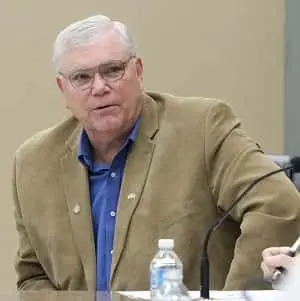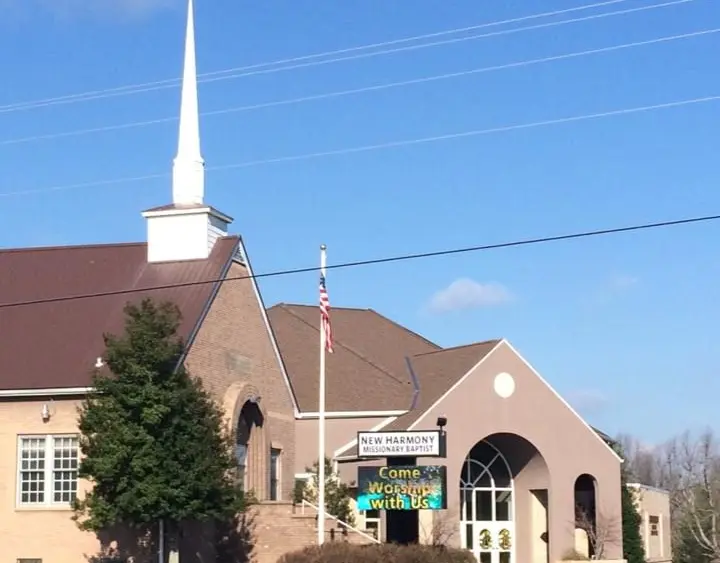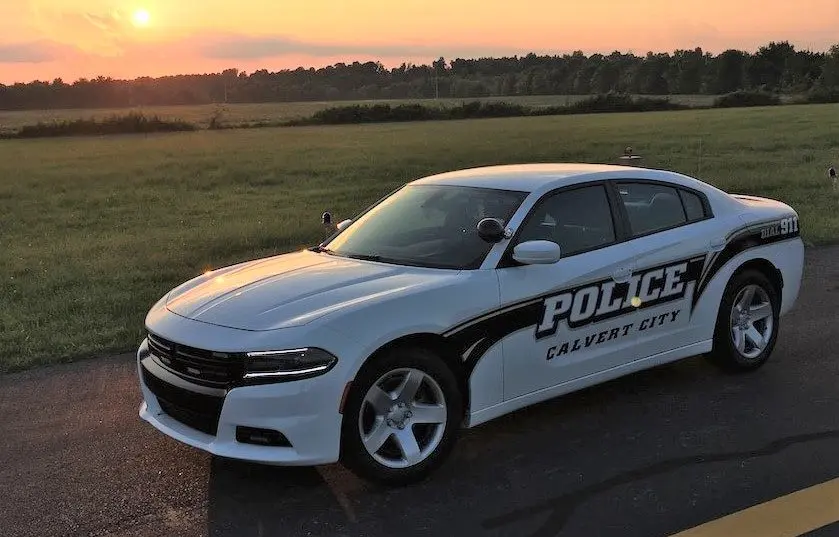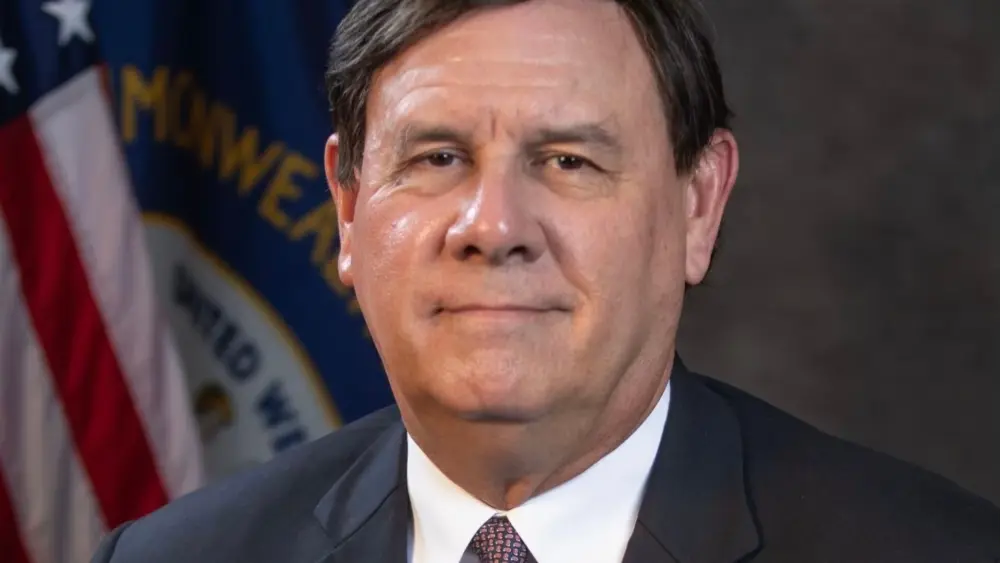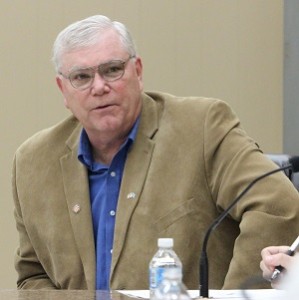
Commissioner Bob Gold
Marshall County Fiscal Court is looking to take a different approach to its road paving plans in the county.
Commissioners in a 2-1 vote on Tuesday during a regularly-scheduled meeting moved forward with a new plan to focus only on the worst roads most heavily traveled in the county to account for an imbalance created by the traditional model of annual paving. District 3 Commissioner Rick Cocke was the only vote of opposition to the measure.
In years past, districts would divvy up Transportation Cabinet funds evenly. The issue, said Judge-Executive Kevin Neal, was that the county was not looking at the actual roads in need of repair, resulting in paving roads where work was less needed than those in other parts of the county.
“What we did, is we put together basically a three-year plan to where we can get all three districts down to at least 3-5 miles of roads that need to be blacktopped, and it can actually be managed a lot better moving forward,” Neal said. “… It’s been some time since we’ve sent somebody out to do a road review of all the roads in the county, but we can start with a managerial piece of road management.”
Neal said he sat down with the Transportation Cabinet director to discuss future funds and had Marshall County Road Superintendent Wendy Greer identify all Class 1 roads – those most in need of repair – in the county. Districts 1 and 2 contained virtually all of the county’s roads that needed improvement – with about 20 miles of roadway each designated as Class 1. District 3 contained less than a mile of Class 1 roadway.
Neal proposed focusing on one district per year – first District 2 then District 1 – in paving efforts, working only on Class 1 roads to bring all districts to an equal distribution of needed work within two years. Neal projected that at the end of 2019, the plan would bring each district to about four miles (or fewer) of Class 1 roadway, which he said was a more manageable number than 20 miles in each.
Commissioners had their concerns, however. Cocke felt the plan was unfair to the taxpayers in his district, which would see no additional paving until 2020 under Neal’s plan.
“Obviously I object very loudly to that,” Cocke said. “That’s my district, and there are roads that need attention there. That’s the district I represent, so I don’t agree with that plan whatsoever.”
Neal, however, said the county as a whole would benefit to bring all its districts to a level playing field. It was difficult to justify paving Class 2 roads – which effectively happens by an equal distribution of money among districts – to residents in other districts that live near and travel Class 1 roads.
“Do you understand the fact that your district is less than three miles of (Class 1) roads?” Neal asked Cocke in response. “This is a very good plan because it gets all the county roads … I mean, you’ve got District 2 and District 1 that have close to 20 miles of road that are rated 1s. The monies divided off of this (previous) list, we’re paving classified roads as No. 2. … Just by looking at this, the way it’s been done over time, you’re looking at dividing the monies out, you get about four miles per district. And if you’ve got one district that’s got 20 miles, as Class 2 roads drop down into Class 1, four miles annually are never going to get 20 miles paved and caught up.
“District 2 has some of the worst roads in the county, and I think as an elected official, I can’t go to somebody else and say, ‘well your road is a Class 2, we’re going to pave it and spend monies on it’ when we’ve got somebody in other parts of the county that have a Class 1 road that we’re going to skip. The goal should be to get our roads at a managed level.”
District 1 Commissioner Bob Gold said he had no issue with focusing funding solely on Class 1 roads to get the district to a more manageable point, however Gold said he didn’t approve of breaking it down to one district at a time.
“It just seems like rather than keying on one district at a time, we could split those among the Class 1 roads,” Gold said. “I certainly feel like that might be a better way of doing this. … We’ve got (Class 1) roads in District 1, we could split that between and might could get them done as well … between District 2 and District 1, if that’s the plan to try to get those caught up. We could do a half and half situation, and then do the other half in each one of those in 2019.”
Neal said it could prove easier – and potentially less costly – for contractors to keep within one geographic area, as the cost of moving equipment from road to road would likely be decreased. Greer said closer proximity could work better for county road crews, as well.
“Just like the paving crew, we go out and cut all the trees back on the roads and ditch them,” Greer said. “That way we’d be in one area at one time to get it all completed. I mean, I think it will work.”
Gold suggested tabling the matter for further evaluation, to which Cocke agreed, however Neal said the county road department was wrapping up its mowing season and would begin preparatory work on culverts and shoulders for next year’s paving as soon as that mowing was complete. Identifying roads now was pressing, he said.
Greer said she could amend the proposed plan to cover some Class 1 roads in each district each year. Gold agreed, and made a motion to move forward with a new plan to focus only on those roads, regardless of distribution among districts. Bowlin seconded and both voted to approve.
In other business, the court:
- Approved a resolution to accept $132,195 in discretionary funds from the Kentucky Transportation Cabinet to repave Reed Road in Fairdealing;
- approved a resolution to establish the Marshall County Industrial Development Authority;
- approved a pay increase for Sanitation District No. 2 Supervisor Lyndell Grove;
- heard the first reading of an ordinance that would set the speed limit on Olive Hamlett Road near Benton to 35 mph; and
- voted to submit a request to the Delta Regional Authority for an $1,100 reimbursement toward sanitation infrastructure project expenses.
View the full court meeting below.

